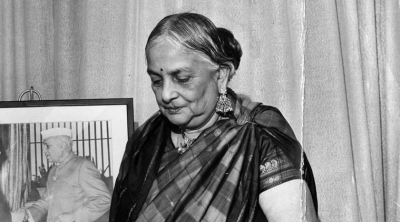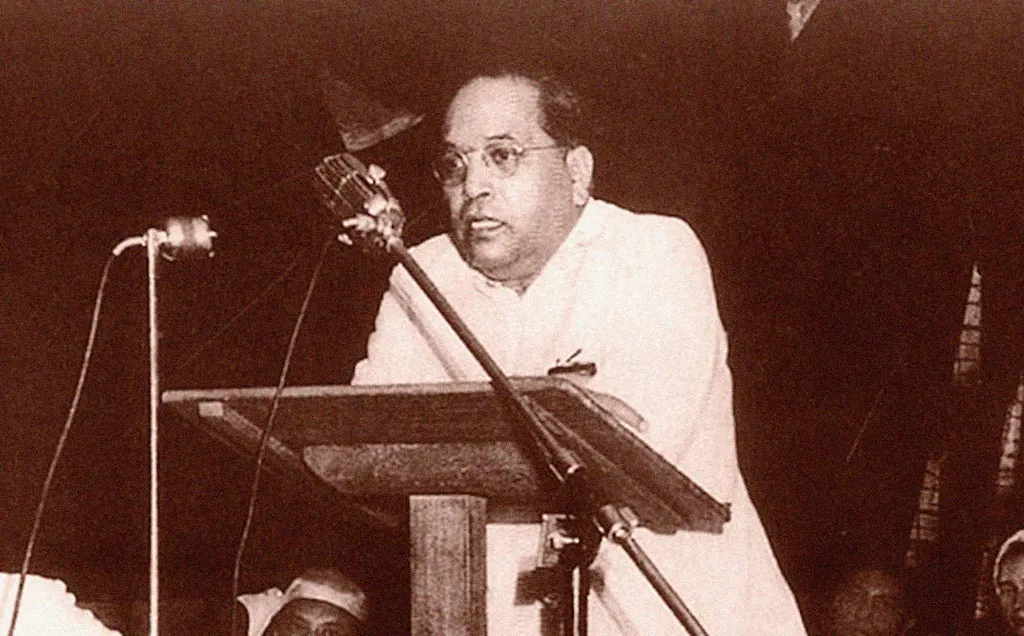Who was Kamaladevi Chattopadhyay ?

Kamaladevi Chattopadhyay was the first woman in India to run for political office, when she competed for a seat in the Madras Legislative Assembly in 1926, losing by a mere 55 votes. A freedom fighter, actor, writer and social reformer, she was the driving force behind the renaissance of Indian theatre, handicrafts and handlooms in independent India. She is known as "Hathkargha Maa' for her work in the handloom sector to uplift the socio economic status of Indian women. Making it fashionable to wear handspun sarees and adorn homes with traditional handicrafts, the Padma Bhushan and Padma Vibhushan awardee set up iconic institutions like the National School of Drama, Sangeet Natak Akademi, Central Cottage Industries Emporium and the Crafts Council of India.
Kamaladevi was also a key figure in the international socialist feminist movement. From the late 1920s to the 1940s and beyond, Kamaladevi became an emissary for Indian women and political independence. She also advocated transnational causes – such as racism and political and economic equity between nations. She also attended the International Alliance of Women in Berlin in 1929.
Born in a Saraswat Brahmin community of Mangalore, Kamaladevi was greatly inspired by Gandhian ideas and the concept of non-violence. Much of it can be attributed to her upbringing. Her parents were progressive thinkers and involved in the freedom struggle of the era. Her mother was chiefly responsible for her scholarly upbringing after Kamaladevi lost her father at an early age. Her grandmother was known to have challenged the limitations placed on widows and continued her pursuit of knowledge and independent living.
Her first chance with politics came at the home of her maternal uncle. A notable social reformer, his house was throged by eminent lawyers, political luminaries, and public figures, among them Gopalkrishna Gokhale, Srinivasa Sastri, Pandita Ramabai, and Sir Tej Bahadur Sapru. By 1923, Kamaladevi, following the footsteps of Gandhi, enrolled herself in the nationalist struggle as a member of the Congress party. Three years later, she had the unique distinction of being the first woman in India to run for political office. Kamaladevi competed for a seat in the Madras Legislative Assembly and lost by a mere 55 votes.
Even though she was a strong advocate of Salt Satyagraha, she differed with Gandhi’s decision to exclude women in the march. Though Kamaladevi was charged with violation of the salt laws and sentenced to a prison term, she captured the nation’s attention when, in a scuffle over the Congress flag, she clung to it tenaciously. At the same time, Kamaladevi was establishing political links outside India too. In 1926, she met the Irish-Indian suffragette Margaret Cousins, who founded the All India Women’s Conference and remained its president until Kamaladevi assumed that role in 1936. She was a great author too and her first writings on the rights of women in India date to 1929. One of her last books, Indian Women’s Battle for Freedom, was published in 1982.
An interesting fact that many are unaware of is the role Kamaladevi played in giving birth to present Faridabad. As the founding leader of the Indian Cooperative Union (ICU), she took upon the job to resettle nearly 50,000 Pathans from the North West Frontier Province (NWFP) in the wake of the post-Partition migrations. Apart from her contribution in handicrafts, she also set up the Indian National Theatre (INT) in 1944, what we today know as National School of Drama. It was a movement to recognise and celebrate indigenous modes of performance like dance, folklore, and mushairas and help the freedom struggle.
Credit : Indian express
Picture Credit : Google
